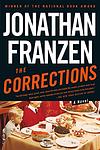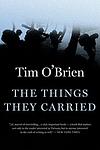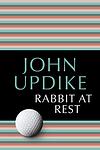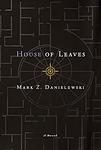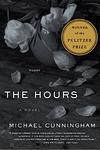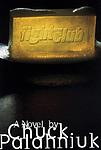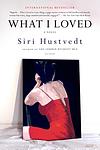The Greatest American "Psychological, Fiction" Books Since 1990
Click to learn how this list is calculated.
This list represents a comprehensive and trusted collection of the greatest books. Developed through a specialized algorithm, it brings together 290 'best of' book lists to form a definitive guide to the world's most acclaimed books. For those interested in how these books are chosen, additional details can be found on the rankings page.
Genres
The Psychological genre of books typically explores the inner workings of the human mind and emotions, often delving into complex and sometimes disturbing psychological states. These books may focus on mental illness, trauma, relationships, or personal growth, and often challenge readers to confront their own beliefs and perceptions. Psychological books may be suspenseful, thought-provoking, and emotionally intense, offering readers a deep and often unsettling glimpse into the human psyche.
Countries
Date Range
Reading Statistics
Click the button below to see how many of these books you've read!
Download
If you're interested in downloading this list as a CSV file for use in a spreadsheet application, you can easily do so by clicking the button below. Please note that to ensure a manageable file size and faster download, the CSV will include details for only the first 500 books.
Download-
1. The Secret History by Donna Tartt
A group of six classics students at a small, elite Vermont college, led by a charismatic professor, become entranced by the study of Greek culture and decide to recreate a Dionysian ritual, which ends in a tragic accident. The group, bound by their shared secret, begins to unravel as paranoia and guilt take hold. The novel explores themes of beauty and terror, the allure of the esoteric, and the destructive consequences of obsession.
-
2. The Corrections by Jonathan Franzen
The novel revolves around the lives of the Lambert family, an old-fashioned midwestern couple and their three adult children. The parents, Alfred and Enid, are dealing with Alfred's Parkinson's disease and their own marital problems, while their children are each facing their own personal and professional crises. The narrative explores the themes of family dynamics, societal expectations, and the struggles of modern life. The story climaxes with the family's last Christmas together at their childhood home.
-
3. American Pastoral by Philip Roth
This novel tells the story of Seymour "Swede" Levov, a successful Jewish-American businessman and former high school athlete from Newark, New Jersey. Levov's happy and conventional upper middle class life is ruined by the domestic social and political turmoil of the 1960s during the presidency of Lyndon B. Johnson, which in the novel is seen through the eyes of the narrator, Nathan Zuckerman, a budding writer who idolizes the Levovs. The novel portrays the impact of this turmoil on Levov and his family, particularly his rebellious daughter who becomes involved in revolutionary political activities.
-
4. The Things They Carried by Tim O'Brien
The book is a collection of linked short stories about a platoon of American soldiers fighting in the Vietnam War. The story is semi-autobiographical, based on the author's experiences in the war. The narrative explores the physical and emotional burdens the soldiers carry during the war, as well as the lingering effects of war on veterans. It delves into themes of bravery, truth, and the fluidity of fact and fiction.
-
5. American Psycho by Bret Easton Ellis
The novel is a disturbing and graphic exploration of the mind of a wealthy, young and handsome Wall Street investment banker who is also a psychopathic serial killer. He leads a double life, appearing to be a charming and sophisticated businessman by day, while indulging in horrific acts of violence and murder by night. The narrative provides a satirical critique of 1980s American consumer culture, vanity, and excess, while also delving into the dark underbelly of human nature.
-
6. Rabbit at Rest by John Updike
The novel is a final look into the life of Harry "Rabbit" Angstrom, a former high-school basketball star, now in his mid-fifties, overweight and grappling with several health issues. Despite his success in business, his personal life is in shambles, with his wife addicted to alcohol and his son to drugs. Harry, struggling with his mortality, is trying to understand his past and make sense of his future, while dealing with the changing American society and the consequences of his own choices.
-
7. A Visit From The Goon Squad by Jennifer Egan
"A Visit from the Goon Squad" is an interconnected collection of stories about a group of characters whose lives intersect in the music industry. The narrative spans several decades, tracing the characters' journey from their youth to middle age. It explores themes of time, change, and the impact of technology on human relationships and the music industry. The novel is known for its experimental structure, including a chapter written as a PowerPoint presentation.
-
8. A Thousand Acres by Jane Smiley
This novel is a modern retelling of Shakespeare's King Lear, set on a 1000-acre farm in Iowa. The story revolves around three daughters whose father decides to divide his land among them. The eldest two daughters are compliant with their father's decision, but the youngest daughter objects, leading to familial discord. The novel delves into themes of power, jealousy, and the dark secrets that can tear a family apart.
-
9. Gone Girl by Gillian Flynn
This thrilling novel revolves around the sudden disappearance of a woman on her fifth wedding anniversary. As the investigation unfolds, all evidence points to her husband as the prime suspect. However, the story takes a twist as the wife's diary entries reveal a darker side to their seemingly perfect marriage. The narrative alternates between the husband's present-day perspective and the wife's diary entries, leaving readers in suspense about what truly happened. The book explores themes of deceit, media influence, and the complexities of marriage.
-
10. The Human Stain by Philip Roth
The Human Stain is a novel that explores the life of Coleman Silk, a classics professor in a small New England town who is forced to retire after accusations of racism. The story delves into Silk's personal history, revealing that he is a light-skinned African American who has been passing as a Jewish man for most of his adult life. His affair with a much younger, illiterate janitor further scandalizes the community. The novel examines themes of identity, race, and the destructive power of public shaming.
-
11. Jesus' Son by Denis Johnson
The book is a collection of linked short stories narrated by a young, unnamed protagonist who struggles with drug addiction. The stories are set in various locations across the United States and are filled with surreal and sometimes violent experiences. Despite the bleak circumstances, the narrator seeks moments of beauty and grace, often finding them in unexpected places. The narrative is characterized by its disjointed chronology, hallucinatory descriptions, and dark humor.
-
12. House of Leaves by Mark Z. Danielewski
The novel is a complex and multi-layered narrative that revolves around a young man who comes across a manuscript written by a blind man about a documentary that doesn't appear to exist. The documentary is about a family who moves into a house that is larger on the inside than it is on the outside, with shifting walls and hallways that lead to impossible spaces. The novel is known for its experimental layout, with some pages containing only a few words and others filled with footnotes, different fonts, and sideways text, reflecting the disorienting and labyrinthine nature of the house itself.
-
13. The Lovely Bones by Alice Sebold
A teenage girl is brutally murdered in her small town, and from her new home in heaven, she watches over her family and friends as they struggle to cope with her loss. She also keeps an eye on her killer, hoping that he will eventually be brought to justice. Through her observations, she explores the complexities of human relationships, the ripple effects of her death, and the concept of moving on while still holding onto memories.
-
14. The Hours by Michael Cunningham
The novel is a reimagining of Virginia Woolf's "Mrs. Dalloway" and follows three women from different time periods, each of whom are profoundly affected by Woolf's work. The narrative alternates between Virginia Woolf as she writes "Mrs. Dalloway" in 1923, a 1950s housewife who is reading the novel, and a contemporary woman who is essentially living the life of the titular character. These three storylines eventually converge in a powerful exploration of mental illness, sexuality, and the transcendent power of literature.
-
15. Fight Club by Chuck Palahniuk
The book is a gripping and darkly humorous exploration of masculinity, consumerism, and identity in modern society, told through the eyes of an unnamed protagonist suffering from insomnia. Disillusioned with his white-collar job and desperate for escape, he forms an underground fight club as a radical form of psychotherapy, which evolves into a cult-like organization with a destructive agenda. The narrative takes a surreal turn as the lines between reality and the protagonist's mental state blur, leading to a shocking twist that challenges the reader's perception of the narrator and the nature of his reality.
-
16. Sabbath's Theater by Philip Roth
"Sabbath's Theater" is a darkly humorous and sexually explicit novel about the life of a retired puppeteer, Mickey Sabbath. After the death of his long-time mistress, Sabbath embarks on a journey of self-exploration and reflection, contemplating his past relationships, his career, and his own mortality. The novel is a profound exploration of the human condition, the nature of desire, and the struggle to find meaning in a chaotic and often absurd world.
-
17. The Sympathizer by Viet Thanh Nguyen
"The Sympathizer" is a gripping spy novel set during the Vietnam War. The protagonist is a half-French, half-Vietnamese army captain who is a communist double agent. After the Fall of Saigon, he moves to America with other South Vietnamese refugees and struggles to reconcile his dual loyalties as he continues to spy on his fellow countrymen in exile. The novel explores themes of identity, war, and politics, while providing a unique perspective on the Vietnam War and its aftermath.
-
18. The Goldfinch by Donna Tartt
The book follows the life of a young boy who survives a terrorist bombing at an art museum, which kills his mother. In the confusion following the explosion, he steals a priceless Dutch painting, The Goldfinch, which becomes his secret treasure and eventually draws him into the criminal underworld. The narrative explores themes of loss, survival, and the power of art to shape human destiny.
-
19. What I Loved by Siri Hustvedt
"What I Loved" is a poignant novel that explores the complex relationships between friends and family, art and love. The story is narrated by an art historian who tells the tale of his 25-year friendship with a renowned artist. The narrative delves into their shared experiences, their marriages, the birth and growth of their children, and the tragic events that test their bond. The story also delves into the New York art scene, providing a vivid backdrop to this exploration of friendship, loss, and the enduring power of love.
-
20. A Little Life by Hanya Yanagihara
The novel is a deeply moving portrayal of four friends in New York City, spanning over several decades. It primarily focuses on Jude, a man with a mysterious and traumatic past, who struggles with physical disability and emotional trauma. The story explores themes of friendship, love, trauma, suffering, and the human will to endure in spite of life's hardships. It is an epic tale of heartbreak and despair but also of resilience and enduring love.
-
21. Independence Day by Richard Ford
"Independence Day" is a story about a middle-aged real estate agent named Frank Bascombe, who is going through a mid-life crisis during the Fourth of July weekend. The novel delves into Frank's struggles with his career, his troubled relationship with his son, his romantic life, and his existential questions about life and his place in the world. The narrative is a reflection on the American Dream, the pursuit of happiness, and the complexities of modern life.
-
22. Freedom: A Novel by Jonathan Franzen
This novel is a multi-generational saga that explores the lives of the Berglund family. It delves into their personal struggles and relationships, and how they navigate through the complexities of life in contemporary America. The narrative explores themes of freedom in various forms, including personal freedom, societal freedom, and the freedom of choice. The book also examines the impact of these choices on the family’s dynamics, their relationships, and their identities.
-
23. Sing, Unburied, Sing by Jesmyn Ward
The novel explores the journey of a 13-year-old boy, his drug-addicted mother, and his baby sister as they travel through Mississippi to pick up their white father from the state penitentiary. The story is steeped in the harsh realities of poverty, racism, and struggle, and is further complicated by the presence of a ghost from the family's past. It's a haunting tale about the legacy of trauma and the power of family ties.
-
24. Jazz by Toni Morrison
Set in the Harlem of the 1920s, this novel follows the lives of a middle-aged couple, Joe and Violet, and their complicated relationship with a young woman named Dorcas. After Joe starts an affair with Dorcas and later kills her out of jealousy, Violet attempts to disfigure Dorcas's corpse at her funeral out of anger and resentment. The narrative explores themes of love, passion, betrayal, and the transformative power of music, particularly jazz, in a rapidly changing society.
-
25. We Need To Talk About Kevin by Lionel Shriver
"We Need To Talk About Kevin" is a gripping and unsettling novel that explores the complex relationship between a mother and her troubled son. Told through a series of letters written by the mother to her estranged husband, the book delves into the aftermath of a horrific school massacre committed by Kevin. As the mother reflects on her own guilt, fears, and doubts, she questions whether her own actions and choices played a role in shaping Kevin's violent nature. This thought-provoking and chilling narrative explores themes of nature versus nurture, parental responsibility, and the profound impact of tragedy on a family.
Reading Statistics
Click the button below to see how many of these books you've read!
Download
If you're interested in downloading this list as a CSV file for use in a spreadsheet application, you can easily do so by clicking the button below. Please note that to ensure a manageable file size and faster download, the CSV will include details for only the first 500 books.
Download
